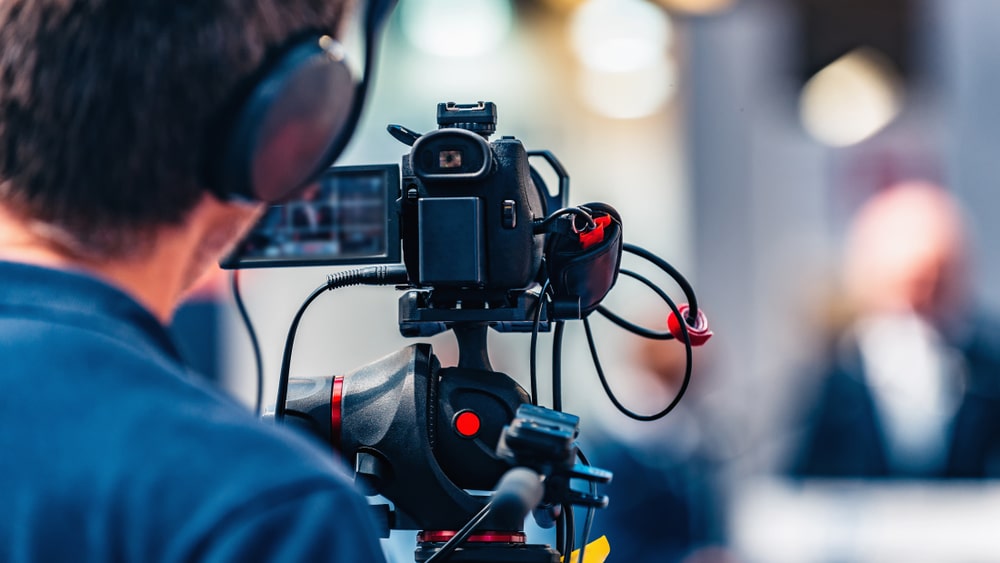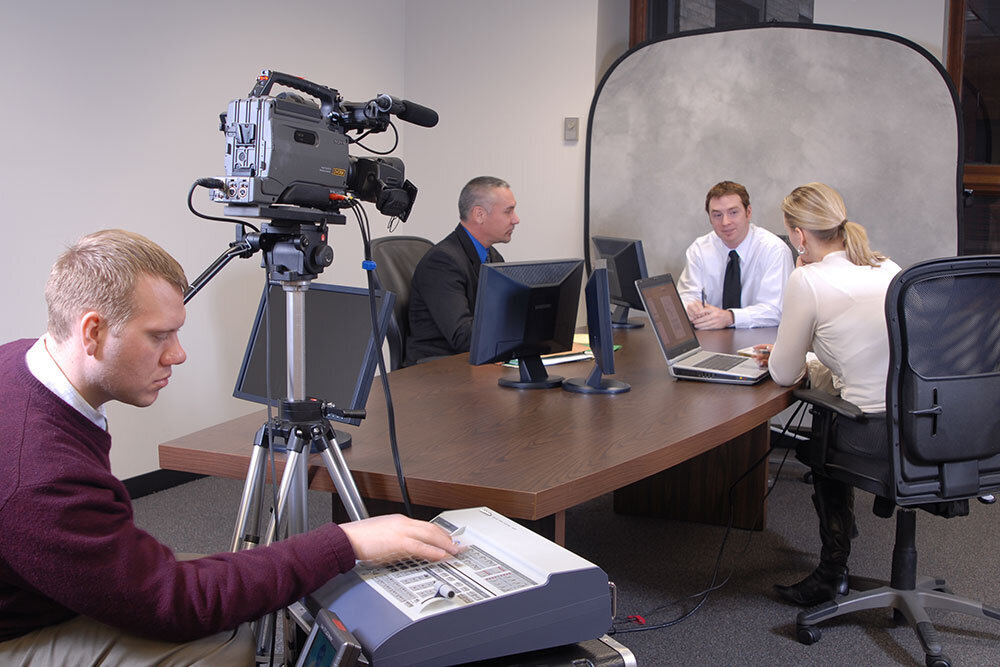A side-by-side comparison of traditional vs legal video depositions
The Relevance of Lawful Video Depositions in Modern Legal Services: What You Ought to Know
Legal video depositions have actually come to be crucial in today's lawful landscape. They offer a multidimensional view of witness testimonies that conventional records just can not match. By recording both non-verbal and spoken interaction, these depositions improve the overall understanding of a witness's reliability. However, the efficiency of video clip depositions depends upon various factors, including compliance with lawful standards and finest methods (legal video depositions). Checking out these aspects discloses their real importance in modern lawful services
What Are Lawful Video Depositions?
Legal video depositions offer as an important tool in the lawsuits procedure. They involve recording witness testaments in a video clip style, catching both non-verbal and spoken interaction. This technique enables attorneys to document the disposition, expressions, and reactions of witnesses, offering a richer context for the testimony. Usually performed in a controlled atmosphere, these depositions are led by attorneys that ask inquiries while a court reporter records the discussion. The resulting video can be crucial for test prep work, as it allows legal representatives to examine the reputation of witnesses and refine their methods. In addition, lawful video clip depositions can be utilized in different legal contexts, varying from civil conflicts to criminal situations. The visual and acoustic elements of video clip depositions improve the discussion of evidence, making it an important part in the contemporary legal landscape. In general, they add substantially to the performance and efficiency of legal procedures.

Benefits of Video Depositions Over Conventional Methods
Video depositions supply countless benefits contrasted to conventional techniques of taking witness testaments. One significant benefit is the capability to catch both visual and audio elements, giving an extra thorough document of the witness's statements. This twin style boosts quality and permits attorneys to reference certain subtleties during test prep work. Additionally, video clip depositions assist in remote engagement, making it much easier for witnesses who might be inaccessible for in-person looks because of geographical restrictions or wellness issues.Moreover, video clip depositions can expedite the total deposition process, reducing the moment and costs associated with travel and logistics. They additionally enhance accessibility, as taped depositions can be quickly shared amongst lawful teams and referenced at any moment. This convenience adds to far better instance monitoring and prep work. On the whole, video clip depositions represent a modern-day, efficient approach to collecting witness statements, straightening with the progressing requirements of the lawful occupation.
The Function of Body Movement and Tone in Testimonies

In lawful video clip depositions, body language and tone play important functions in communicating a witness's trustworthiness and trustworthiness. Nonverbal hints can give insights into a witness's psychological state, influencing exactly how their testimony is regarded. Understanding the influence of these components is important for jurors and attorneys alike when reviewing the reliability of a testimony.
Nonverbal Interaction Insights
While verbal communication is often stressed in lawful statements, nonverbal signs such as body movement and tone play a vital duty in conveying trustworthiness and feeling. Observers of depositions might note that a witness's position, gestures, and faces can considerably influence assumptions of reliability. Regular eye call might indicate confidence, while staying clear of look can suggest deceit or discomfort. The tone of voice-- its rate, pitch, and volume-- can pass on sensations of genuineness or uncertainty. Lawyers must be in harmony with these nonverbal signals, as they frequently provide crucial context that complements spoken words. Recognizing these subtleties can improve the efficiency of depositions and affect the end result of legal proceedings.
Psychological Tone Impact
The emotional tone conveyed throughout legal statements greatly influences just how a witness is viewed. Body movement, singing inflections, and faces play important duties fit the narrative of a statement. A witness displaying self-confidence via consistent eye get in touch with and a tranquil tone can impart a feeling of dependability and interaction. On the other hand, indicators of anxiousness, such as fidgeting or an unstable voice, may lead to skepticism regarding their account. The nuances of psychological expression can influence the interpretation of truths, making it important for attorneys to acknowledge these hints. In video depositions, the auditory and aesthetic parts combine, emphasizing the importance of psychological tone in conveying sincerity and reliability within the legal procedure.
Credibility and Credibility
A crucial consider establishing credibility and credibility during testaments hinges on the witness's body movement and tone of voice. Observers usually depend on non-verbal hints-- such as eye contact, pose, and motions-- to evaluate a witness's sincerity. For example, a witness who keeps eye official source get in touch with and displays open body language may be perceived as more reliable and honest than one who stays clear of eye get in touch with or appears shut off. Furthermore, intonation plays a necessary role; a steady, tranquil tone can strengthen the credibility of the testimony, while changes in pitch or quantity might raise questions. Eventually, the mix of body movement and singing tone significantly influences just how a witness's statements are obtained and analyzed in a legal context.
Finest Practices for Performing Video Depositions
Conducting video depositions requires cautious planning and implementation to guarantee a clear and effective discussion of statement. It is essential to choose a silent, well-lit area to reduce disturbances and secure ideal video clip high quality. The equipment must be tested ahead of time, including video cameras, microphones, and illumination, to stay clear of technological concerns throughout the deposition.Next, events entailed have to evaluate the style and treatments in advance, ensuring that everyone recognizes their duties. The deponent needs to be informed on the procedure, consisting of exactly how to respond plainly and concisely.Additionally, keeping a specialist disposition throughout the session is vital. This consists of avoiding speaking over one an additional and verifying that all inquiries are routed suitably. Ultimately, it is critical to tape the deposition in a format that enables for easy playback and evaluation, preserving the stability of the testament for future usage.
Legal Considerations and Compliance Issues
How do lawful considerations and conformity problems impact the effectiveness of video depositions? Legal experts must navigate a complex landscape of policies, ensuring that video clip depositions comply with administrative regulations and criteria. Conformity with regulations concerning privacy, consent, and videotaping methods is crucial. For circumstances, getting specific approval from all events involved is essential to stay clear of lawful repercussions.Additionally, the admissibility of video clip evidence in court can depend upon compliance with procedural demands. Ensuring that the devices made use of fulfills technical standards is also vital, as low quality can undermine the deposition's reliability.Moreover, attorneys have to understand any particular state legislations that govern video depositions, as these can differ substantially. Failure to deal with these factors to consider can not just threaten the stability of the deposition but additionally affect the total situation method, inevitably affecting the client's lawful outcomes.
How Video Depositions Influence Jury Assumption
While video clip depositions can work as effective devices in legal proceedings, their impact on court assumption is substantial. The auditory and visual elements of video recordings give jurors with an extra extensive understanding of witness disposition, credibility, and emotional responses. This multimedia strategy can enhance the jurors' ability to assess the reliability of testimony compared to conventional text-based transcripts.Moreover, video depositions permit jurors to observe body movement, tone of voice, and facial expressions, all of which can impact their interpretation of the witness's declarations. The presence of a witness on display can humanize them, promoting compassion and link, which might sway jurors' viewpoints. On the other hand, a witness that shows up incredibly elusive or untrustworthy on video might lead to adverse understandings that affect a jury's decision. Ultimately, the dynamic nature of video clip depositions plays an essential duty fit just how jurors analyze proof and reach their judgments.
The Future of Video Depositions in Legal Practice
As improvements in innovation continue to improve the legal landscape, the future of video clip depositions is poised for considerable advancement. Developments such as fabricated intelligence, online truth, and enhanced video clip conferencing tools are expected to simplify the deposition process and boost ease of access. Lawyers might use AI-driven analytics to analyze witness credibility and situation toughness a lot more effectively.Moreover, the assimilation of online fact might allow juries to experience immersive simulations of depositions, providing much deeper context and understanding. Additionally, the trend toward remote depositions is most likely to linger, supplying greater flexibility for clients and attorneys alike.As remote work comes to be increasingly stabilized, video depositions will likely end up being conventional practice, minimizing expenses and time restrictions related to traditional approaches. On the whole, these find out here now technical improvements guarantee to enhance the efficiency, efficiency, and access of video clip depositions in lawful practice, inevitably transforming exactly how lawyers plan for test.
Regularly Asked Inquiries
How Much Do Legal Video Clip Depositions Usually Expense?

Can Video Depositions Be Used in Any Type of Case?
Video depositions can be used in various kinds of situations, consisting of civil, criminal, and family members regulation. Their versatility enables attorneys to present witness testimonies properly, adapting to navigate to this site the specific requirements of various legal situations.
What Equipment Is Needed for a Video Clip Deposition?
To conduct a video clip deposition, necessary devices consists of a high-grade cam, microphone, illumination, and a reliable recording gadget. Furthermore, a computer with editing and enhancing software program may be needed for post-production and formatting the final video.
For how long Does a Common Video Clip Deposition Last?
A common video clip deposition lasts between two to four hours, depending on the intricacy of the instance and the number of questions postured. Extended sessions might occur, however breaks are typically integrated for participant convenience.

Are Video Clip Depositions Admissible in Court?
Video depositions are generally admissible in court, provided they abide by lawful standards and policies of evidence. Their use enhances clearness and maintains witness statement, assisting in the judicial procedure throughout trials and hearings. Lawful video clip depositions have actually come to be crucial in today's lawful landscape. In addition, lawful video depositions can be made use of in different lawful contexts, varying from civil conflicts to criminal situations. Furthermore, video depositions promote remote involvement, making it much easier for witnesses who might be inaccessible for in-person appearances due to geographical restraints or health and wellness issues.Moreover, video depositions can expedite the general deposition process, reducing the time and expenses connected with travel and logistics. Making sure that the devices used meets technological criteria is also important, as inadequate quality can undermine the deposition's reliability.Moreover, lawyers have to be aware of any kind of certain state legislations that govern video clip depositions, as these can differ significantly. Furthermore, the trend toward remote depositions is likely to linger, supplying higher flexibility for clients and attorneys alike.As remote work ends up being increasingly stabilized, video clip depositions will likely become standard method, reducing expenses and time constraints connected with traditional techniques.